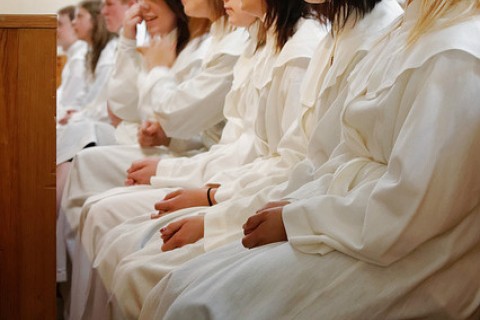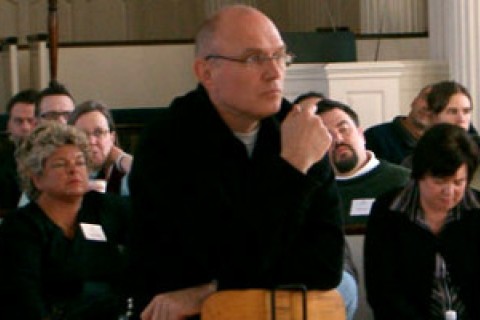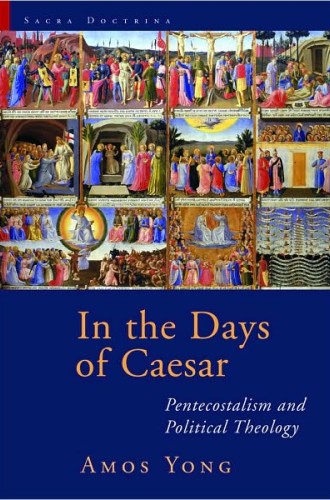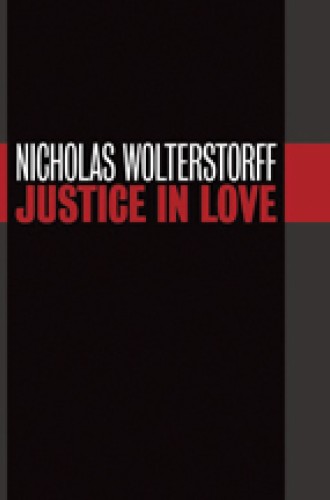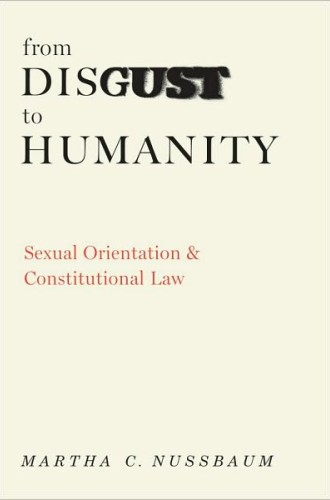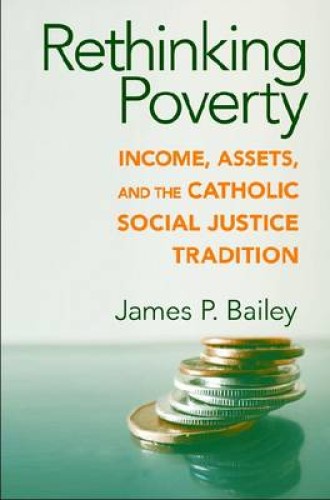Features
Glimpse of the holy: Advent with a toddler
I decided our family's Christmas would be simple and spirit-centered. Green to parenting, I defined spiritual as anything that allowed me a minute to reflect on what, beyond the laundry, mattered.
Pearl of great price: A girl claims her faith
On Sundays, my mother stayed home and read the paper. Yet she insisted that we kids go to church.
Take Shelter
Take Shelter deals with the end of the world in a creepier and even more metaphoric manner than von Trier's Melancholia.
Artists in worship: The church as patron
Mercy Seat spends about
$27,000 a year on the arts—a quarter of its annual budget. At
those rates, the church is one of the better-paying gigs in the Minneapolis-St. Paul area.
New harmonies: Music and identity at four congregations
Some post-worship-war churches revel in musical eclecticism. Others have a singular approach and sound, rendering the terms traditional and contemporary irrelevant.
To tell the truth: Nobel winner Leymah Gbowee
If Martin Luther King Jr. had written a book exposing his personal failings, it would have been seen as undermining his cause. But Leymah Gbowee does not want to be thought of as a hero.
Two faiths, one God? Miroslav Volf meets evangelical critics: Miroslav Volf meets evangelical critics
Miroslav Volf believes that Christians and Muslims
worship the same God. On November 3 he took that argument to
Gordon-Conwell Theological Seminary.
Melancholia
Lars von Trier has been churning out grim tales of human frailty and
moral depravity for almost 20 years. His latest is a disturbing tale of personal pain juxtaposed with an eerie end-of-the-world story.
Books
In the Days of Caesar, by Amos Yong
In the course of the 20th century, Pentecostalism expanded from a small revival movement to a global presence comparable in its extent and variety to Roman Catholicism or Anglicanism....
Generous forgiveness
In Justice in Love, Nicholas Wolterstorff rejects egoism, eudaemonism and utilitarianism as inadequate ways to think about the practice of well-being.
From Disgust to Humanity, by Martha C. Nussbaum
Martha Nussbaum's perspective cuts to the heart of our tendency to exclude others when they
fail to live up to expectations about how "good
people" should be.
Rethinking Poverty, by James P. Bailey
James Bailey has written a superb, creative and timely book whose
primary audience should be the U.S. Congress. Unfortunately, the
current members of Congress do not seem to possess the intellectual
wattage necessary to profit from it.
Departments
Redeeming darkness
Darkness does not come from a different place than light; it is not presided over by a different God.
Ready for Advent
I'm particularly eager for Advent this year. Perhaps it's because recent world events have been so relentlessly grim.
The Double Rose Vision
Melding seriousness with wry joy, Michigan artist Rick Beerhorst creates location out of dislocation, dislocation out of location. His preparatory sketches are artworks in their own right....
Memories of persecution
Once upon a time—and not long ago—there was another Europe. The religious story of communist Europe, in which Christians suffered horrific persecutions, is forgotten by most Americans today.
Occupied holy ground
Church leaders can appreciate the challenges
that St. Paul's has faced. Yet there is something profoundly right about
a moral protest in a cathedral courtyard.
News
Sudan churches stay united after political division of country
Despite this year's vote by South Sudan for independence, churches in Sudan and South Sudan have decided to remain united, mainly to help denominations in Muslim-majority Sudan....
Kinnamon leaving NCC for health reasons
Michael Kinnamon, a longtime ecumenical leader who has headed the
National Council of Churches since 2007, announced that he will leave
his post as general secretary of the New York–based NCC, following the...
Atheists organize at religious colleges
Read the sidebar article....
Nonbelievers find niche at California Lutheran
Read the main article....
White House flubs Bible, like everyone else
The White House proved itself scripturally challenged recently when
Press Secretary Jay Carney said: "I believe the phrase from the Bible
is, 'The Lord helps those who help themselves.'"
Actually, no....
Tokyo interfaith panel eyes new suicide views
Japan,
which has one of the highest suicide rates among developed countries,
is increasingly using the term for "voluntary death" instead of "killing
oneself." ...
Seminaries look to update ministers’ skill set
For more than 200 years, Andover Newton Theological School has
trained future pastors to have expertise in biblical studies, pastoral
care and preaching. But the nation's oldest school of theology has...
Cardinal’s claim disputed by Catholic theologian
An unusual public dispute is brewing between Washington Cardinal
Donald Wuerl and a feminist theologian who essentially accused Wuerl of
lying about the hierarchy's review of her work....
Clergy, politicians find out how far food stamps go
Religious leaders and members of Congress were getting a firsthand
taste of what it's like to eat on $4.50 a day as part of the Food Stamp
Challenge in Washington. In the challenge, participants try to live for...
Lectionary
Sunday, December 4, 2011: Isaiah 40:1–11; Mark 1:1–8
I'm afraid I want the good news of Christmas without the challenge.




